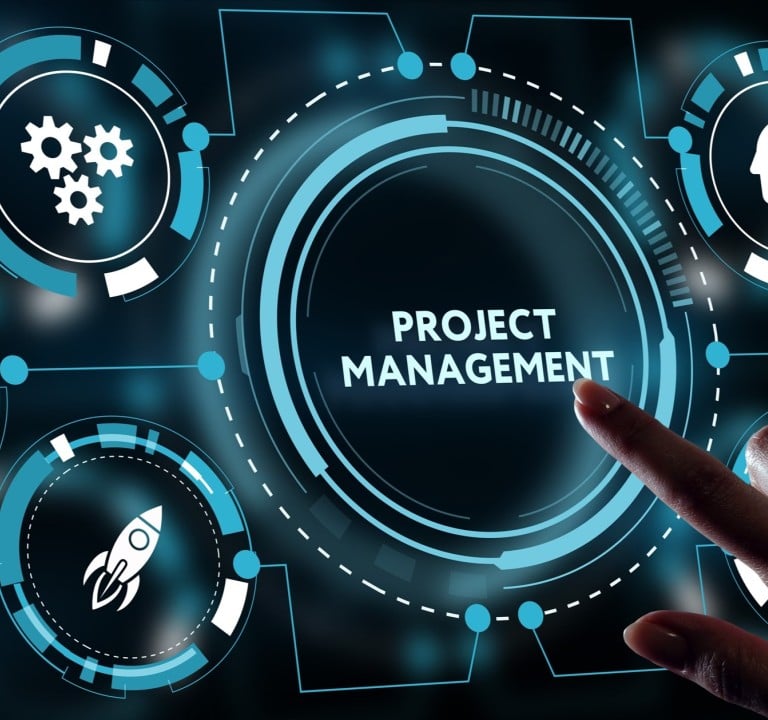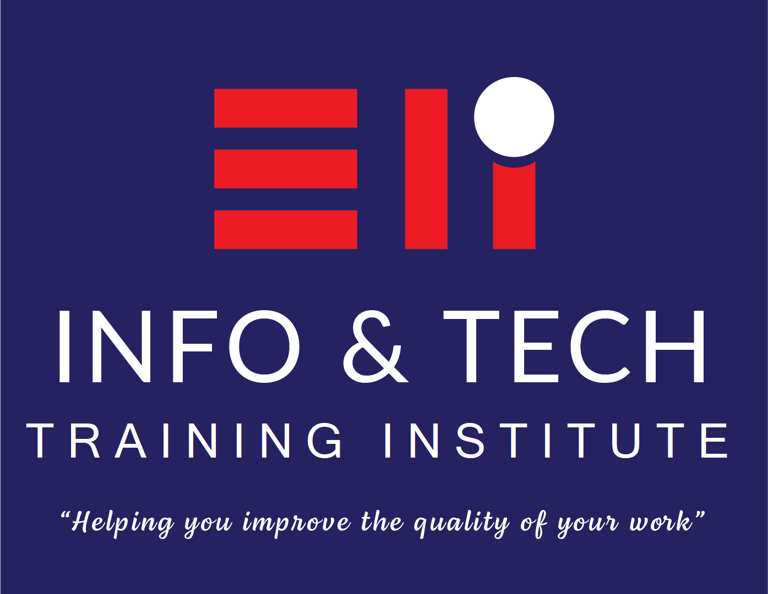Add your promotional text...



Project Management

Project management is the discipline of planning, organizing, securing, managing, and controlling resources to achieve specific goals. 1 It involves a series of processes to initiate, plan, execute, monitor, control, and close projects.
Key aspects of project management include:
Initiation: Defining the project scope, objectives, and deliverables.
Planning: Creating a detailed project plan, including timelines, resource allocation, and risk assessment.
Execution: Assigning tasks, monitoring progress, and managing resources.
Monitoring and Control: Tracking project performance, identifying deviations, and taking corrective action.
Closure: Finalizing the project, evaluating performance, and documenting lessons learned.
Project managers utilize various tools and techniques, such as Gantt charts, PERT charts, and risk management strategies, to ensure successful project delivery. Effective project management helps organizations achieve their strategic goals, improve operational efficiency, and deliver value to stakeholders.
Project Management

A Brief Overview
What will be covered in this module?
The Monitoring and Evaluation (M&E) of Developmental Projects module is designed to equip participants with the essential skills and knowledge required to effectively monitor and evaluate development projects. Key topics likely to be covered include:
Understanding M&E: This section will explore the purpose of M&E, its role in project management, and the different types of M&E (e.g., performance monitoring, impact evaluation).
M&E frameworks: Participants will learn about various M&E frameworks, such as the Logical Framework Approach (LFA) and the Results-Based Management (RBM) approach.
Indicator development: The module will cover the process of developing clear, measurable indicators to track project progress and outcomes.
Data collection methods: Participants will learn about different data collection methods, including surveys, interviews, focus groups, and secondary data analysis.
Data analysis and reporting: The module will provide training on data analysis techniques and the preparation of M&E reports.
Monitoring systems: Participants will learn how to design and implement effective monitoring systems to track project activities and progress.
Evaluation methods: The module will cover different evaluation methods, such as needs assessments, process evaluations, and impact evaluations.
Utilization of M&E findings: Participants will learn how to use M&E findings to improve project implementation and decision-making.
Relevant course material:
The specific course materials may vary depending on the provider, but here are some common resources that might be used:
Textbooks: There are several textbooks available that cover M&E, particularly in the context of development projects. Examples include "Monitoring and Evaluation in Development: A Practical Guide" by Michael P. Sullivan and "Measuring Development: A Practical Guide to Impact Evaluation" by David L. Heenan.
Case studies: Real-world case studies can provide valuable insights into the challenges and successes of M&E in development projects.
Templates and tools: Participants may be provided with templates for M&E plans, data collection instruments, and analysis tools.
Online resources: There are numerous online resources, including articles, webinars, and online courses, that can supplement the classroom learning experience.
By the end of this module, participants should have a solid understanding of the principles and practices of M&E in development projects, enabling them to effectively monitor and evaluate projects and use the findings to improve project implementation and achieve desired outcomes.
Monitoring and Evaluation of Developmental Projects

This specialized program focuses on the unique challenges and opportunities involved in managing projects funded by external donors. It covers a range of topics, including:
Donor Requirements and Compliance: Understanding the specific rules, regulations, and reporting requirements of various donors.
Project Cycle Management: Applying the project cycle phases (initiation, planning, execution, monitoring, evaluation, and closure) to donor-funded projects.
Logical Framework Approach (LFA): Using LFA to design, implement, and evaluate projects, ensuring alignment with donor objectives.
Financial Management: Managing budgets, tracking expenditures, and ensuring financial accountability.
Procurement and Contracting: Understanding procurement procedures, contract management, and ensuring compliance with donor regulations.
Monitoring and Evaluation (M&E): Developing robust M&E systems to track project progress, measure impact, and report to donors.
Risk Management: Identifying, assessing, and mitigating risks that could impact project success.
Stakeholder Management: Engaging with diverse stakeholders, including donors, beneficiaries, government officials, and partners.
Reporting and Communication: Preparing high-quality reports and communicating effectively with donors and other stakeholders.
By completing this program, participants gain the skills and knowledge to successfully manage donor-funded projects, ensuring efficient use of resources, achieving project objectives, and building strong relationships with donors.
Project Management for Donor Funded Projects

Programme and project planning and implementation involve a systematic approach to defining, planning, executing, monitoring, controlling, and closing projects or programmes. This process ensures that projects are delivered on time, within budget, and to the desired quality standards.
Key Stages:
Initiation:
Identifying the need for a project or programme.
Defining the project scope, objectives, and deliverables.
Creating a project charter or programme brief.
Planning:
Developing a detailed project plan, including work breakdown structures, timelines, and resource allocation.
Identifying and mitigating risks.
Developing a communication plan.
Creating a monitoring and control plan.
Execution:
Assigning tasks and responsibilities to team members.
Monitoring progress and taking corrective action as needed.
Managing the project budget and resources.
Communicating with stakeholders.
Monitoring and Control:
Tracking project performance against the plan.
Identifying deviations and taking corrective action.
Measuring key performance indicators (KPIs).
Conducting regular reviews and status reports.
Closure:
Finalizing the project or programme.
Evaluating the project's performance and lessons learned.
Documenting project outcomes and sharing best practices.
Handing over the project deliverables to the client or end-user.
Key Tools and Techniques:
Work Breakdown Structure (WBS)
Gantt charts
PERT charts
Risk management techniques
Cost-benefit analysis
Quality management techniques
Change management
By effectively planning and implementing projects and programme, organizations can achieve their strategic goals, improve operational efficiency, and deliver value to their stakeholders.
Project Planning and Implementation

Advanced Project Management
Advanced Project Management delves deeper into the complexities of project management, building upon foundational knowledge. It focuses on enhancing skills and techniques to effectively manage large-scale, complex, and strategic projects.
Key areas covered often include:
Advanced Project Management Methodologies:
In-depth study of methodologies like Agile, PRINCE2, and PMBOK.
Adapting methodologies to specific project contexts.
Strategic Project Management:
Aligning projects with organizational goals.
Developing and executing strategic project plans.
Risk Management:
Advanced risk assessment and mitigation techniques.
Implementing robust risk management frameworks.
Change Management:
Leading organizational change and managing resistance.
Developing effective change management strategies.
Portfolio Management:
Prioritizing and selecting projects based on strategic objectives.
Balancing competing demands and optimizing resource allocation.
Leadership and Team Management:
Advanced leadership skills for motivating and inspiring teams.
Building high-performing project teams.
Financial Management:
Advanced financial analysis and budgeting techniques.
Cost control and optimization strategies.
By completing an advanced project management program, professionals gain the expertise to lead and manage complex projects successfully, delivering value and achieving organizational objectives.
Advanced Project Management

Managing project teams involves leading and coordinating a group of individuals to achieve specific project goals within a defined timeframe and budget. It encompasses various aspects, including:
Team Formation and Development:
Identifying and selecting team members with the necessary skills and experience.
Defining clear roles and responsibilities for each team member.
Building strong relationships and fostering a positive team culture.
Planning and Organization:
Developing a comprehensive project plan, including tasks, timelines, and resource allocation.
Creating a clear project scope and defining deliverables.
Establishing effective communication channels within the team and with stakeholders.
Task Management and Delegation:
Breaking down project tasks into smaller, manageable subtasks.
Assigning tasks to team members based on their skills and workload.
Monitoring progress and providing timely feedback and support.
Risk Management:
Identifying potential risks and developing strategies to mitigate them.
Creating contingency plans to address unexpected challenges.
Continuously monitoring and managing risks throughout the project lifecycle.
Communication and Collaboration:
Encouraging open and transparent communication among team members.
Using effective communication tools and techniques to share information and updates.
Facilitating collaboration and teamwork to achieve shared goals.
Conflict Resolution:
Identifying and addressing conflicts within the team promptly.
Using effective conflict resolution strategies to maintain a positive team environment.
Promoting a culture of respect and understanding.
Performance Management:
Setting clear performance expectations and providing regular feedback.
Recognizing and rewarding team members' contributions.
Addressing performance issues and providing necessary coaching and support.
Project Closure:
Evaluating the project's success and identifying lessons learned.
Documenting project outcomes and sharing knowledge with the organization.
Celebrating achievements and recognizing the team's ontributions.
Managing Project Teams

An Advanced Project Planning and Implementation course delves deeper into the complexities of project management, building upon foundational knowledge. It focuses on enhancing skills and techniques to effectively manage large-scale, complex, and strategic projects.
Key areas covered often include:
Advanced Project Management Methodologies:
In-depth study of methodologies like Agile, PRINCE2, and PMBOK.
Adapting methodologies to specific project contexts.
Strategic Project Management:
Aligning projects with organizational goals.
Developing and executing strategic project plans.
Risk Management:
Advanced risk assessment and mitigation techniques.
Implementing robust risk management frameworks.
Change Management:
Leading organizational change and managing resistance.
Developing effective change management strategies.
Portfolio Management:
Prioritizing and selecting projects based on strategic objectives.
Balancing competing demands and optimizing resource allocation.
Leadership and Team Management:
Advanced leadership skills for motivating and inspiring teams.
Building high-performing project teams.
Financial Management:
Advanced financial analysis and budgeting techniques.
Cost control and optimization strategies.
By completing an advanced project management program, professionals gain the expertise to lead and manage complex projects successfully, delivering value and achieving organizational objectives.
Advanced Project Planning and Implementation
Eli Info Tech Training Institute
Office No.C6 Print Pak Building, Mbabane Industrial site, Eswatini
admin@elinfor.co.sz/ elisha@elinfor.co.sz
Copyrights©2024 Eli Info & Tech Training Institute


